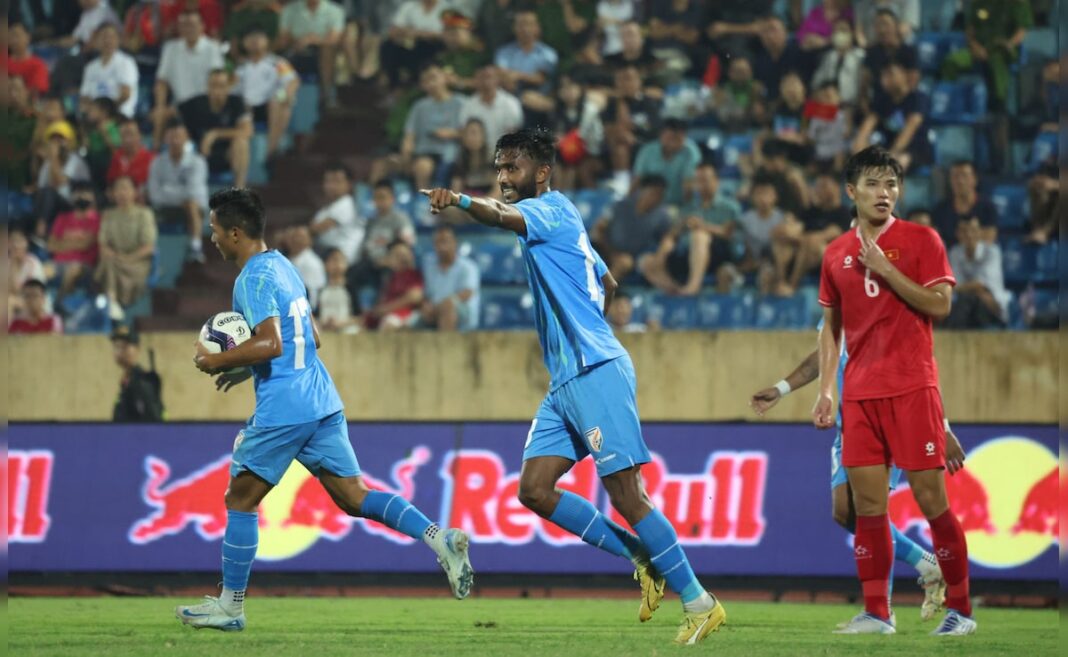
Poor refereeing in the Indian Super League (ISL) has long been a source of frustration for many coaches, but the national federation’s top officer Trevor Kettle on Sunday claimed that the standard of referees in the country is “improving in many competencies”. Several coaches of ISL clubs, mostly foreign, have in the past talked about the poor standard of refereeing in the top-tier league and even the All India Football Federation’s (AIFF) President Kalyan Chaubey had expressed concerns on the matter a few months back.
The most recent incident involved two controversial referee decisions during the Kerala Blasters vs Hyderabad FC match in Kochi a few days ago. But Kettle, the AIFF’s Chief Refereeing Officer (CRO), highlighted the improvements made by the Indian referees when asked about his views in the context of several past and present foreign coaches expressing disappointment on the refereeing standard at the ISL.
“The standards of referees in India are improving in many competencies, including growing confidence to take stronger disciplinary action, improved fitness standards to maintain pace with the game, less prone to being deceived by players simulating or exaggerating, and allowing more game flow,” Kettle told PTI.
“The accuracy of Key Match Incident (KMI) decisions is now being accurately monitored as the prime indicator of refereeing performance with a reach target of 85%. Interestingly, the results of the pre-season Head Coach survey on referees, on average, expected an accuracy of 82.5% without the aid of VAR technology.
“At present, the KMI % accuracy fluctuates around this level but would improve to approximately 97% with VAR (Video Assistant Referee) implementation.” There is no VAR in the ISL and the AIFF is hoping to start the technology from next season onwards.
Asked about the apparent refereeing blunder in the Kerala Blasters vs Hyderabad FC match, he said, “Each match official’s performance, along with the referee assessors’ independent report, is monitored with new processes introduced over the past two years. The accuracy of every KMI in each ISL game is checked by a panel of current AFC Referee Assessors and ex-FIFA referees.
“The outcome of these KMI reviews drives the technical training requirement for the elite match officials to further educate with the ultimate aim of continuous improvement.
“Referees are not infallible, like players, and will make errors of judgment and at times this unfortunately impacts the result of a game. Referees are held accountable for continued inaccurate KMI decision-making and will not be prioritized for future appointments.” On December 31, 2023, Chaubey, in an unprecedented move, had come down heavily on the referee department for the mounting refereeing errors in the 2023-24 season ISL and I-League, saying there was an “urgent need for accountability”.
“A number of video clips were shown which highlighted incidents of perceived errors forwarded by various stakeholders. It was accepted that some of these decisions were incorrect but others were indeed correct,” Kettle said when asked about the then meeting of Chaubey with several stakeholders.
“I have created an open dialogue with clubs who now have a direct point of contact in me as CRO at AIFF to express their concerns on refereeing matters.” On the issues he has flagged to the AIFF in this regard, he said, “I have often requested assistance … to explain refereeing decisions to the wider stakeholders for greater transparency and understanding of the LOTG (Laws of the Game) whilst also displaying empathy with the human error of referees.
“A head coaches meeting for both ISL and I-League is highly recommended every pre-season to improve relationships, mutual respect and clarification of LOTG interpretation.” He said long-term continued investment in Elite Referee Development Plan, providing necessary technical support to referees and allowing match officials to take on full-time professional contracts is absolutely imperative if refereeing standards are to improve.
“We must understand that refereeing is not yet a highly-paid job in India. In most cases, referees take it up as a part-time profession. However, the AIFF is continuously pursuing the policy of having full-time referees.
“At the moment, there are eight referees and seven assistant referees, who are on a full-time contract with the AIFF. Their contracts have once again been renewed early this month.
“At the same time, we are thankful to the AIFF for working continuously for the referees’ development. The Centre of Referees Excellence (CORE) has already been set up in two cities — Gwalior (MP) and Thiruvananthapuram (Kerala).”
(Except for the headline, this story has not been edited by NDTV staff and is published from a syndicated feed.)
Topics mentioned in this article




